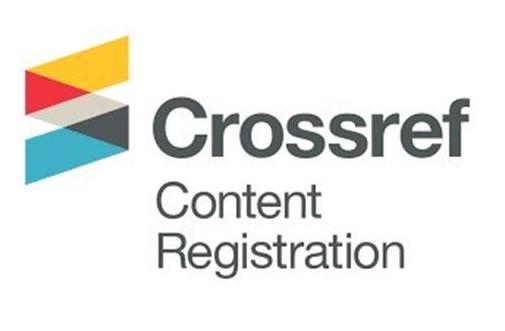Desafios na formação de professores
Influências globais e soluções locais
DOI:
https://doi.org/10.24840/esc.vi67.779Palavras-chave:
formação de professores, política global, influência neoliberal, democracias liberaisResumo
A formação de professores é influenciada por uma meta-narrativa global que afirma que a melhoria da qualidade da formação de professores conduzirá a melhores resultados para os/as alunos/as, o que, por sua vez, conduzirá à competitividade económica no contexto global. Assim, a formação de professores é vista como uma alavanca poderosa para alcançar esta ambição e é, por conseguinte, posicionada como um problema político. Este artigo descreve alguns dos principais desafios globais, tanto em termos de política global de formação de professores como em relação a influências sociais mais alargadas. Problematiza a noção de que os desafios globais podem ser enfrentados através de soluções globais de grande envergadura, argumentando que a governação democrática liberal no Norte global é contrária a uma reforma a mais longo prazo que não alcança resultados num ciclo eleitoral. Em vez disso, o artigo sugere que certas mudanças ao nível do programa/parceria podem funcionar de forma poderosa para alcançar a ambição de uma formação de professores mais progressista do ponto de vista social.
Downloads
Referências
Arar, Khalid, Brooks, Jeffrey S., & Bogotch, Ira (2019). Education, immigration and migration: Policy, leadership and praxis for a changing world. In Khalid Arar, Jeffrey S. Brooks, & Ira Bogotch (Eds.), Education, immigration and migration (pp. 1–12). Emerald. https://doi.org/10.1108/978-1-78756-044-420191003
Barber, Michael, & Mourshed, Mona (2007, September 1). How the world’s best-performing school systems come out on top. McKinsey & Company. https://www.mckinsey.com/industries/education/our-insights/how-the-worlds-best-performing-school-systems-come-out-on-top#/
Biesta, Gert (2008). Good education in an age of measurement: On the need to reconnect with the question of purpose in education. Educational Assessment, Evaluation and Accountability, 21, 33–46. https://doi.org/10.1007/s11092-008-9064-9
Biesta, Gert, Takayama, Keita, Kettle, Margaret, & Heimans, Stephen (2021). Teacher education policy: Part of the solution or part of the problem? Asia-Pacific Journal of Teacher Education, 49(5), 467–470. https://doi.org/10.1080/1359866X.2021.1992926
Cochran-Smith, Marilyn (2004). The problem of teacher education. Journal of Teacher Education, 55(4), 295–299. https://doi.org/10.1177/0022487104268057
Cochran-Smith, Marilyn, Grudnoff, Lexie, Orland-Barak, Lily, & Smith, Kari (2020). Educating teacher educators: International perspectives. The New Educator, 16(1), 5–24. https://doi.org/10.1080/1547688X.2019.1670309
Conway, Paul F., & Murphy, Rosaleen (2013). A rising tide meets a perfect storm: New accountabilities in teaching and teacher education in Ireland. Irish Educational Studies, 32(1), 11–36. https://doi.org/10.1080/03323315.2013.773227
Czerniawski, Gerry, Kidd, Warren, & Murray, Jean (2019). We are all teacher educators now: Understanding school-based teacher educators in times of change in England. In Jean Murray, Anja Swennen, & Clare Kosnik (Eds.), International research, policy and practice in teacher education: Insider perspectives (pp. 171–185). Springer. https://doi.org/10.1007/978-3-030-01612-8_12
European Commission. (2013). Supporting teacher educators for better learning outcomes. https://clarekosnik.files.wordpress.com/2014/12/european-commision-on-tchr-ed.pdf
Garrotte, Ariana, Dessemontet, Rachel S. & Opitz, Elisabeth M. (2017). Facilitating the social participation of pupils with special educational needs in mainstream schools: A review of school-based interventions. Educational Research Review, 20(1), 12-23. https://doi.org/10.1016/j.edurev.2016.11.001
General Teaching Council for Scotland. (2021). The standard for provisional registration. https://www.gtcs.org.uk/wp-content/uploads/2021/09/standard-for-provisional-registration.pdf
Gibbs, Graham (1999). Using assessment strategically to change the way students learn. In Sally Brown & Angela Glasner (Eds.), Assessment matters in higher education: Choosing and using diverse approaches (pp. 41–54). Open University Press.
Grek, Sotiria (2009). Governing by numbers: The PISA ‘effect’ in Europe. Journal of Education Policy, 24(1), 23–37. https://doi.org/10.1080/02680930802412669
Hedtke, Reinhold (2016). Education for participation: Subject didactics as an agent of politics? Educação, Sociedade & Culturas, 48, 7–30. https://doi.org/10.34626/esc.vi48.173
Kadir, Farzaana A., & Aziz, Azlina A. (2021). Teaching practicum during COVID-19 pandemic: A review of the challenges and opportunities of pre-service teachers. International Journal of Academic Research in Business and Social Sciences, 11(4), 1175–1183. http://dx.doi.org/10.6007/IJARBSS/v11-i4/9646
Kennedy, Aileen (2018). Developing a new ITE programme: A story of compliant and disruptive narratives across different cultural spaces. European Journal of Teacher Education, 41(5), 638–653. https://doi.org/10.1080/02619768.2018.1529753
Kennedy, Aileen (2022). The Scottish approach to mentoring in early phase teacher education: An overview and critique. In Sandra Eady, Jane Essex, Kay Livingston, & Margaret McColl (Eds.), Mentoring teachers in Scotland (pp. 19–30). Routledge. https://doi.org/10.4324/9780429356957-3
Kennedy, Aileen, Beck, Anna, & Shanks, Rachel (2021). Developing a context-appropriate framework for measuring quality in initial teacher education. Scottish Educational Review, 53(1), 3–25. https://doi.org/10.1163/27730840-05301002
Kennedy, Aileen, & Bell, Linda (2022). School-based teacher educators: A Scottish Manifesto. In Ian Menter (Ed.), Palgrave handbook of teacher education research (pp. 503–528). Palgrave Macmillan. https://doi.org/10.1007/978-3-030-59533-3_20-1
Kennedy, Aileen, Hay, Lizzie, & Mcgovern, Becca (2020). A story of transforming teacher education. Scottish Educational Review, 52(1), 18–35. https://doi.org/10.1163/27730840-05201003
Kidd, Warren, & Murray, Jean (2020). The Covid-19 pandemic and its effects on teacher education in England: How teacher educators moved practicum learning online. European Journal of Teacher Education, 43(4), 542–558. https://doi.org/10.1080/02619768.2020.1820480
Koedel, Cory, Mihaly, Kata, & Rockoff, Jonah E. (2015). Value-added modeling: A review. Economics of Education Review, 47, 180–195. https://doi.org/10.1016/J.ECONEDUREV.2015.01.006
Ladson-Billings, Gloria (1995). Toward a theory of culturally relevant pedagogy. American Educational Research Journal, 32(3), 465–491. https://doi.org/10.3102/00028312032003465
Livingston, Kay (2014). Teacher educators: Hidden professionals? European Journal of Education, 49(2), 218–232. https://doi.org/10.1111/ejed.12074
Luan, Hui, Geczy, Peter, Lai, Hollis, Gobert, Janice, Yang, Stephen J. H., Ogata, Hiroaki, Baltes, Jacky, Guerra, Rodrigo, Li, Ping, & Tsai, Chin-Chung (2020). Challenges and future directions of big data and artificial intelligence in education. Frontiers in Psychology, 11. https://doi.org/10.3389/fpsyg.2020.580820
MacPhail, Ann, Ulvik, Marit, Guberman, Ainat, Czerniawski, Gerry, Oolbekkink-Marchand, Helma, & Bain, Yvonne (2019). The professional development of higher education-based teacher educators: Needs and realities. Professional Development in Education, 45(5), 848–861. https://doi.org/10.1080/19415257.2018.1529610
Mayer, Diane E. (2006). Research funding in the U.S.: Implications for teacher education research. Teacher Education Quarterly, 33(1), 5–18. https://www.jstor.org/stable/23478731
Mayer, Diane, & Oancea, Alis (2021). Teacher education research, policy and practice: Finding future research directions. Oxford Review of Education, 47(1), 1–7. https://doi.org/10.1080/03054985.2021.1853934
Morris, Paul (2015). Comparative education, PISA, politics and educational reform: A cautionary note. Compare: A Journal of Comparative and International Education, 45(3), 470–474. https://doi.org/10.1080/03057925.2015.1027510
Murray, Jean, & Male, Trevor (2005). Becoming a teacher educator: Evidence from the field. Teaching Teachers, 21(2), 125–142. https://doi.org/10.1016/j.tate.2004.12.006
OECD. (2005). Teachers matter: Attracting, developing and retaining effective teachers, education and training policy. OECD Publishing. https://doi.org/10.1787/9789264018044-en
Ping, Cui, Schellings, Gonny, & Beijaard, Douwe (2018). Teacher educators’ professional learning: A literature review. Teaching and Teacher Education, 75, 93–104. https://doi.org/10.1016/j.tate.2018.06.003
Postholm, May B. (2019). The teacher educator’s role as enacted and experienced in school-based development. Teachers and Teaching, 25(3), 320–333. https://doi.org/10.1080/13540602.2019.1587403
Rauschenberger, Emilee, Adams, Paul & Kennedy, Aileen (2017). Measuring quality in initial teacher education: A literature review for Scotland’s MQuITE Study. Scottish Council of Deans of Education.
Rowan, Leonie, Bourke, Terri, L’Estrange, Lyra, Brownlee, Jo Lunn, Ryan, Mary, Walker, Susan, & Churchward, Peter (2021). How does initial teacher education research frame the challenge of preparing future teachers for student diversity in schools? A systematic review of literature. Review of Educational Research, 91(1), 112–158. https://doi.org/10.3102/0034654320979171
Sälzer, Christine, & Preznan, Manfred (2017). Policy implications of PISA in Germany: The case of teacher education. In Louis Volante (Ed), The PISA effect on global education governance (pp. 109–126). Routledge.
Scottish Government. (2023). Diversity in the teaching profession: Annual data report. https://www.gov.scot/publications/diversity-teaching-profession-annual-data-report/pages/2/
Sleeter, Christine (2014). Toward teacher education research that informs policy. Educational Researcher, 43(3), 146–153. https://doi.org/10.3102/0013189X14528752
Swisher, Abigail (2023). States of the states 2023: Policies to increase teacher diversity. National Council on Teacher Quality.
Tannock, Stuart (2017). No grades in higher education now! Revisiting the place of graded assessment in the reimagination of the public university. Studies in Higher Education, 42(8), 1345–1357. https://doi.org/10.1080/03075079.2015.1092131
Timotheou, Stella, Miliou, Ourania, Dimitriadis, Yiannis, Villagrá Sobrino, Sara, Giannoutsou, Nikoleta, Cachia, Romina, Martínez Monés, Alejandra, & Ioannou, Aandri (2023). Impacts of digital technologies on education and factors influencing schools’ digital capacity and transformation: A literature review. Education and Information Technologies, 28(6), 6695–6726. https://doi.org/10.1007/s10639-022-11431-8
Torres, Ana Cristina, Teixeira, Ana Isabel, Pais, Sofia C., Menezes, Isabel, & Ferreira, Pedro D. (2021). Teachers in times of emergency remote teaching: A focus on teaching and relationships. Educação, Sociedade & Culturas, 59, 117–138. https://doi.org/10.24840/esc.vi59.339
Ware, Hannah, Singal, Nidhi, & Groce, Nora (2022). The work lives of disabled teachers: Revisiting inclusive education in English schools. Disability & Society, 37(9), 1417–1438. https://doi.org/10.1080/09687599.2020.1867074
Downloads
Publicado
Como Citar
Edição
Secção
Licença
Direitos de Autor (c) 2024 Aileen Kennedy

Este trabalho encontra-se publicado com a Licença Internacional Creative Commons Atribuição-NãoComercial-CompartilhaIgual 4.0.
Os/as autores/as mantêm os direitos autorais, sem restrições, e concedem à revista ESC o direito de primeira publicação, com o trabalho simultaneamente licenciado sob a Creative Commons Atribuição-NãoComercial-CompartilhaIgual 4.0 Internacional (CC BY-NC-SA). É permitido copiar, transformar e distribuir e adaptar o material em qualquer suporte ou formato, desde que com o devido reconhecimento da autoria e publicação inicial nesta revista, as alterações sejam identificadas e seja aplicada a mesma licença ao material derivado, não podendo ser usado para fins comerciais.









